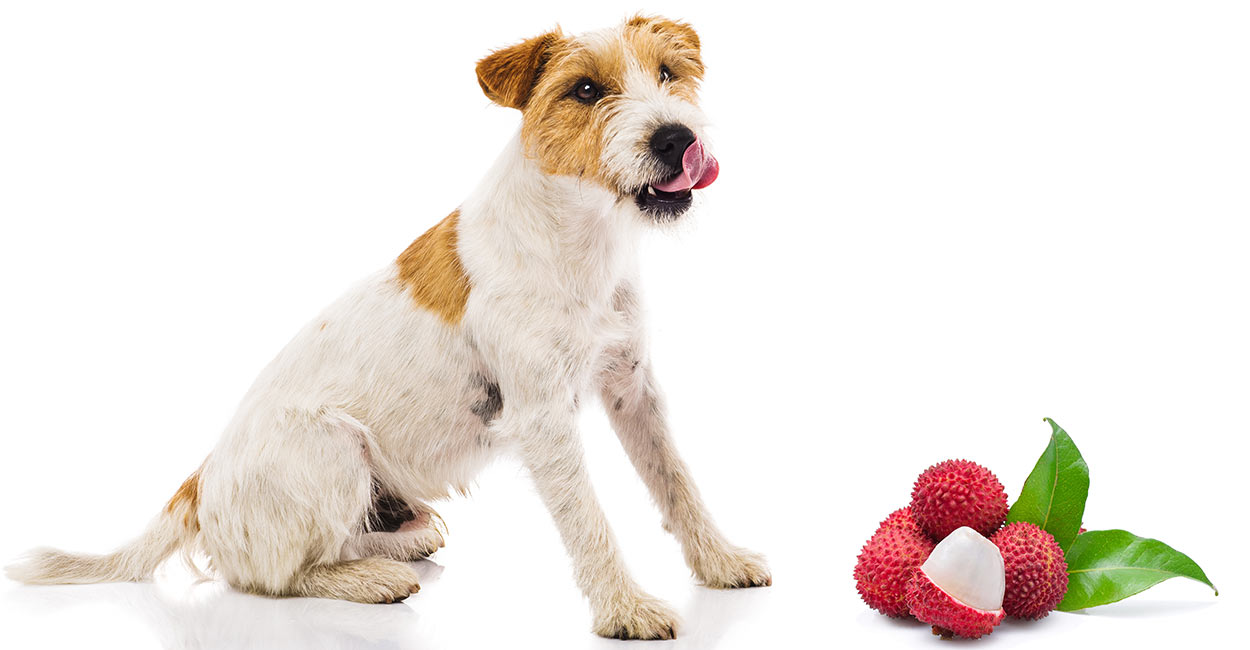Introduction
Our dogs are not just pets; they’re cherished members of the family. As responsible pet owners, it’s natural to want to share our favorite foods with them. Lychee, with its unique taste and texture, might catch your dog’s attention. But before you indulge their curiosity, let’s explore whether can dogs eat lychee fruit safely and what precautions you should take.

Can Dogs Savor Lychee? The Safety Check
Absolutely, dogs can relish lychee in moderation. The juicy flesh holds the key to some nutritional benefits, but there’s more to the story. Let’s unravel the details to make sure your dog’s lychee experience is both enjoyable and safe.
Nutritional Bounty of Lychee
Lychee isn’t just a treat for the taste buds; it brings a burst of nutrition to the table. Packed with vital vitamins like C, B6, and niacin, and essential minerals including copper, potassium, and magnesium, lychee offers more than just flavor. Introducing this fruit in small doses contributes to the diversity of your dog’s nutritional intake.
The Perks of Lychee Consumption
Beyond the delightful taste, feeding lychee to your dog can have potential health perks. The robust vitamin C content supports a resilient immune system, while the presence of antioxidants aids in combating free radicals. As a bonus, the natural sweetness of lychee provides a healthier option compared to some commercial dog treats.

Cautionary Measures: Risks and Precautions
While lychee can be a safe addition to your dog’s treat repertoire, being aware of potential risks is crucial:
- Steer Clear of Seeds and Skin: Lychee seeds and skin pose digestion challenges and may lead to a choking hazard. Make it a rule to always remove these parts before treating your dog to lychee.
- Moderation as a Guiding Principle: As with any treat, moderation is the golden rule. Excessive consumption of lychee may result in digestive upset due to its natural sugar content.
- Watch for Allergies: Introduce lychee gradually and keep an eye out for signs of allergies or sensitivities. Any indication of itching, swelling, or digestive issues warrants a consultation with your veterinarian.
Serving Lychee with Finesse
When presenting lychee to your canine companion:
- De-seed and Peel: Prioritize your dog’s safety by thoroughly removing seeds and peeling the lychee.
- Bite-sized Bliss: Cut the fruit into small, manageable pieces to prevent choking and ease digestion.
- Treats in Moderation: Rather than a daily indulgence, reserve lychee as an occasional treat to maintain a balanced diet.
A Flavorful Journey for Dogs
Beyond the safety considerations, exploring the world of lychee for your dog can become a flavorful journey. From crafting lychee-infused treats to freezing the fruit for a refreshing summertime snack, the possibilities are as diverse as the fruit’s taste.

Can Dogs Eat Lychee Fruit?
Can dogs eat lychee fruit, it’s not recommended as a regular treat. Lychee contains compounds that may be difficult for dogs to digest, and the high sugar content can lead to digestive issues or an upset stomach. The lychee pit also poses a choking hazard, and the tough skin can be challenging for dogs to chew and digest. If you choose to share a small amount of lychee with your dog, ensure that it’s peeled, seedless, and offered in moderation. Always monitor your dog for any adverse reactions, and if in doubt, consult with your veterinarian before introducing new fruits into your dog’s diet.
Conclusion
In summary, feeding lychee to your dog can be a delightful and safe experience when done with mindfulness and moderation. This guide equips you with the knowledge to make informed choices, ensuring your dog not only enjoys the taste of lychee but also reaps the nutritional rewards. As always, consult your veterinarian before introducing new foods, tailoring your dog’s treat menu to their specific needs and health status.
FAQS
1 thought on “Can Dogs Eat Lychee Fruit? A Guide To Safe Feeding 2023”